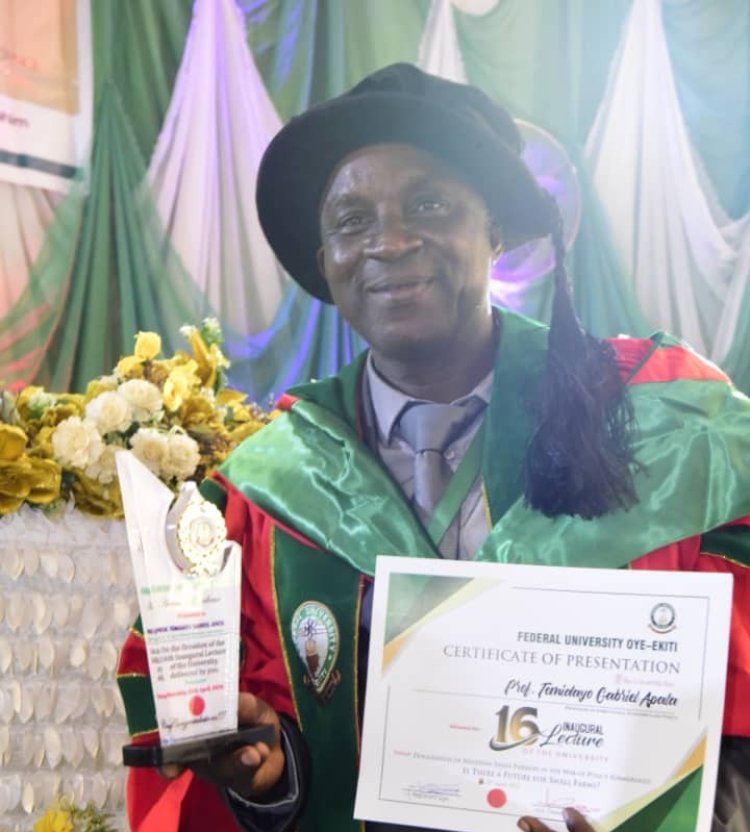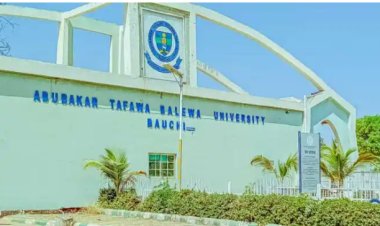FUOYE Agricultural Economics Professor Urges FG on Pro-Poor and Agric-Support Policies
Professor Temidayo Gabriel Apata, a renowned expert in Agricultural Economics at the Federal University Oye Ekiti (FUOYE), emphasized the importance of prioritizing "pro-poor" and "agric-support" policies to tackle Nigeria's economic challenges.

In a bid to address Nigeria's pressing socio-economic challenges, particularly food insecurity and rural poverty, Prof. Temidayo Gabriel Apata, a distinguished Agricultural Economics Professor at Federal University Oye Ekiti (FUOYE), has urged the Federal Government under President Bola Ahmed Tinubu to prioritize 'pro-poor' and 'agric-support' policies.
RECOMMENDED: FUOYE Don, Dr. Sunday Adedini, and 12 Others Awarded $780,000 Research Grants
Speaking at FUOYE's Faculty of Science Lecture Theatre during the institution's 16th Inaugural Lecture, Prof. Apata emphasized the critical importance of implementing policies that promote local business activities and significantly improve income distribution. He underscored the potential of such policies to drive agricultural growth, reduce rural poverty, and elevate the standard of living for average Nigerians.
Addressing the issue of policy somersaults which have contributed to economic challenges, Prof. Apata urged the government to adopt a self-sustaining growth policy focused on structural transformation. He highlighted the resilience of small-scale farmers as key contributors to food production and GDP in Nigeria, emphasizing the need for tailored policies that reflect local conditions and circumstances.
Among his recommendations, Prof. Apata stressed the importance of promoting local business activities and evaluating the impact of pro-poor and agriculture-supporting policies on rural residents. He also called for the Federal Ministry of Agriculture and Food Security to publish performance metrics to track progress and integrate data-driven insights into policy-making and planning processes.
In conclusion, Prof. Apata emphasized the necessity of significant investments in people, processes, and systems to transition Nigerian agriculture into a sustainable commercial ecosystem capable of generating wealth and creating jobs. His impassioned plea underscores the urgency of adopting holistic strategies to address Nigeria's socio-economic challenges and unlock the full potential of its agricultural sector.
READ ALSO: FUOYE Announces 2024/2025 Postgraduate Admissions

 Chris Oyeoku Okafor
Chris Oyeoku Okafor 



